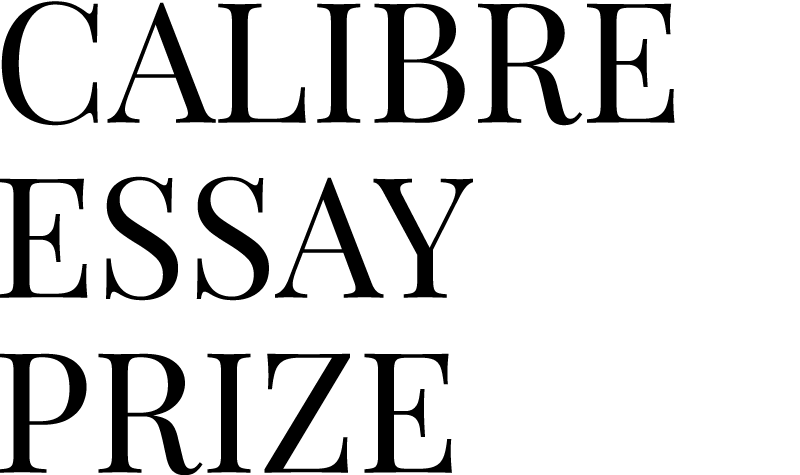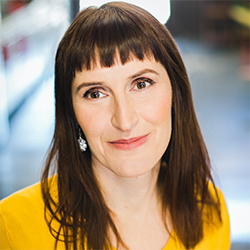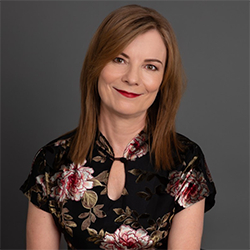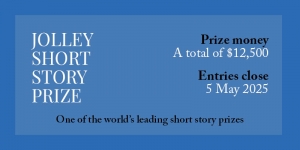Competitions and programs (118)
2026 Calibre Essay Prize Judges
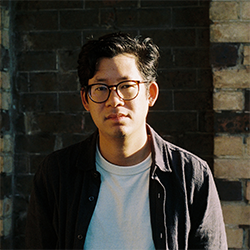 André Dao is an author and researcher from Naarm/Melbourne, Australia. His début novel, Anam, won the Prime Minister’s Literary Award for Fiction, the NSW Premier’s Literary Award for New Writing, and was shortlisted for the Miles Franklin Literary Award and the Voss Literary Award. He was awarded the 2024 Pascall Prize for Cultural Criticism for essays published in The Saturday Paper, Meanjin, and Liminal. He is also a postdoctoral research fellow at the Laureate Program in Global Corporations and International Law at Melbourne Law School. His forthcoming monograph Human Rights for the Data Society: Big Tech, the UN & the datafication of rights will be published by Cambridge University Press in 2026.
André Dao is an author and researcher from Naarm/Melbourne, Australia. His début novel, Anam, won the Prime Minister’s Literary Award for Fiction, the NSW Premier’s Literary Award for New Writing, and was shortlisted for the Miles Franklin Literary Award and the Voss Literary Award. He was awarded the 2024 Pascall Prize for Cultural Criticism for essays published in The Saturday Paper, Meanjin, and Liminal. He is also a postdoctoral research fellow at the Laureate Program in Global Corporations and International Law at Melbourne Law School. His forthcoming monograph Human Rights for the Data Society: Big Tech, the UN & the datafication of rights will be published by Cambridge University Press in 2026.
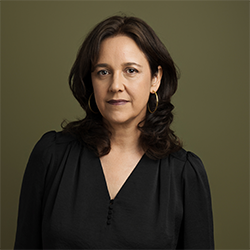 Kate Fullagar is a Professor of History at Australian Catholic University, a Fellow of the Australian Academy of Humanities and Vice President of the Australian Historical Association. She is the author of The Savage Visit: New World Peoples and Popular Imperial Culture (University of California Press, 2012) and The Warrior, the Voyager, and the Artist: Three Lives in an Age of Empire (Yale University Press, 2020). Her most recent book is Bennelong & Phillip: A History Unravelled (Simon & Schuster, 2023).
Kate Fullagar is a Professor of History at Australian Catholic University, a Fellow of the Australian Academy of Humanities and Vice President of the Australian Historical Association. She is the author of The Savage Visit: New World Peoples and Popular Imperial Culture (University of California Press, 2012) and The Warrior, the Voyager, and the Artist: Three Lives in an Age of Empire (Yale University Press, 2020). Her most recent book is Bennelong & Phillip: A History Unravelled (Simon & Schuster, 2023).
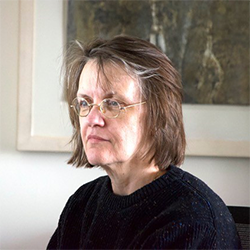 Diane Stubbings is a writer and critic. She is the author of Anglo-Irish Modernism and the Maternal (Palgrave, 2000) and The Parricide (Currency Press, 2014), and a contributor to Identity, Culture and the Science Performance (Methuen Drama, 2024) and The Routledge Companion to Science and Performance, (Routledge, forthcoming). Over the last decade her writing has been published in The Canberra Times, The Australian, Sydney Review of Books, Australian Book Review, New Writing and TEXT Journal. Diane’s plays have been shortlisted for a number of awards including the Griffin Award and the Patrick White Playwriting Award.
Diane Stubbings is a writer and critic. She is the author of Anglo-Irish Modernism and the Maternal (Palgrave, 2000) and The Parricide (Currency Press, 2014), and a contributor to Identity, Culture and the Science Performance (Methuen Drama, 2024) and The Routledge Companion to Science and Performance, (Routledge, forthcoming). Over the last decade her writing has been published in The Canberra Times, The Australian, Sydney Review of Books, Australian Book Review, New Writing and TEXT Journal. Diane’s plays have been shortlisted for a number of awards including the Griffin Award and the Patrick White Playwriting Award.
Click here to enter
Status: Open for entries
Total Prize money: $10,000
Dates: 27 October 2025 – 3 February 2026, 11:59 pm AEST
Judges: André Dao, Kate Fullagar, and Diane Stubbings
Australian Book Review welcomes entries in the 2026 Calibre Essay Prize, worth $10,000. The Calibre Prize is open to all essayists writing in English. We seek essays of between 2,000 and 5,000 words on any subject. We welcome essays of all kinds: personal or political, literary or speculative, traditional or experimental. Founded in 2007, the Calibre Prize is one of the world’s leading prizes for a new non-fiction essay. This is the twentieth year the prize has been run.
Past winners
Click the link for more information about past winners and to read their essays.
FAQs and Terms and Conditions
Please read our Frequently Asked Questions before contacting us with queries about the Calibre Prize.
Before entering the Calibre Essay Prize, all entrants must read the Terms and Conditions.
Exclusivity
Entries may be submitted elsewhere during the judging of the Calibre Prize. If the essay(s) are longlisted by ABR, the entrant will have 24 hours to decide if they wish to withdraw their essay elsewhere or from the Calibre Prize. Exclusivity is essential for longlisted essays, and we require confirmation of such for all longlisted essays.
The overall winning essay will be published in the first half of 2026, followed by the runners-up.
Entry fees
Current ABR subscribers: $20
Standard/non subscribers: $30*
*All non-subscribers will automatically receive four-month digital access to ABR free of charge.
Entry + subscription bundles
Entry + 1-year digital subscription: $100
Entry + 1-year print subscription (Australia): $130
Entry + 1-year print subscription (NZ and Asia): $220
Entry + 1-year print subscription (Rest of World): $240
Those who purchase a subscription while entering will be able to submit subsequent entries at the subscriber rate ($20).
ABR thanks founding Patrons Mary-Ruth Sindrey and Peter McLennan for their continuing support for the Calibre Essay Prize.
2026 Porter Prize Judges
Judith Bishop is the author of three award-winning poetry collections, Event (Salt, 2007), Interval (UQP, 2018), and Circadia (2024), as well as three limited edition chapbooks, including Here Hear (Life Before Man, 2022). Judith’s awards include the Kenneth Slessor Poetry Prize for Interval and the Peter Porter Poetry Prize (2006, 2011). Her poems have been used as lyrics for compositions including Jane Stanley’s ‘14 Weeks’ for the Glasgow School of Art Choir (2023), ‘The Indifferent’ for the Hermes Experiment (2024), Andrew Ford’s ‘Isolation Hymn’ (2021), and Mastaneh Nazarian’s ‘Aubade’ (2019). Judith lives in Melbourne, Australia, and has studied in the United States and Britain. She is the 2024-2026 Tracey Banivanua Mar Fellow at La Trobe University and is writing a book about AI and human data.
Felicity Plunkett is a poet and critic. Her books are A Kinder Sea (UQP), Vanishing Point (UQP) and the chapbook Seastrands (Vagabond). Felicity was Poetry Editor for University of Queensland Press for nine years and edited the collection Thirty Australian Poets (UQP). She has a PhD from the University of Sydney and her reviews and essays have been published in places such as Sydney Review of Books, Australian Review of Books and The Irish Times.
Anders Villani is the author of Aril Wire (Five Islands Press, 2018) and Totality (Recent Work Press, 2022).
2026 Peter Porter Poetry Prize
The shortlist for the 2026 Peter Porter Poetry Prize has been announced
Australian Book Review is delighted to announce the shortlist for the 2026 Peter Porter Poetry Prize. The prize was judged by Judith Bishop, Felicity Plunkett, and Anders Villani. We received 1,360 entries from thirty-two countries. The shortlisted poems will appear in the January-February 2026 issue. Now in its twenty-second year, the Porter Prize is one of Australia’s most lucrative and respected poetry awards. It honours the life and work of the great Australian poet Peter Porter (1929–2010), a contributor to ABR for many years.
Status: Shortlist announced
First prize: AU$6,000
Four other shortlisted poets: AU$1,000
Dates: Opened 7 July and closed 13 October 2025
Judges: Judith Bishop, Felicity Plunkett, and Anders Villani
More information
Click here for more information about past winners and to read their poems.
Please read our Terms and Conditions and Frequently Asked Questions.
The Peter Porter Poetry Prize is funded by the ABR Patrons, including support in memory of Kate Boyce.
The shortlist for the 2026 Peter Porter Poetry Prize is as follows (in alphabetical order by author surname):
J Andros (United States) | ‘American Influencers’
Kirsten Krauth (Vic.) | ‘Diverging’
Cheryl Leavy (QLD) | ‘Kumanjayi’
Claire Potter (NSW) | ‘Invisible Hinges’
Lisa Gluskin Stonestreet (United States) | ‘In Costume’
Of the five shortlisted poems, the judges had this to say:
‘American Influencers’
With the mythic sweep of Whitman or Ginsberg and the acuity of a lyric essay, this capacious poem attempts to hold the current moment in the United States, like filings of a precious, corroded metal. Nimble leaps between past, present, and future; a formal refinement that careens and fractures with its subject; tonal fluidity; historical record; critical theory; the poem deploys its resources with deft instinct and blazing commitment. Through invocations to AI tools, as a lyric might invoke a deity, the poem dramatises the crisis of futurity and truth itself: what we seek by pursuing it; where to find it; who gatekeeps it. The first-person speaker traverses the country, and the American continent, with a gaze – at class struggle; at racial injustice; at climate breakdown; at isolationism and loneliness – that urges a response and makes response possible.
‘Diverging’
If poetic form, as Denise Levertov argued, can be ‘a method of apperception … of recognising what we perceive, and is based on an intuition of an order’, then the intuition behind the form of ‘Diverging’– the juxtapositional logic of acceptance and love – draws its reader into its felt and embodied forms of care. The repeated slashes are a tain, retaining the image of a child on the verge of adulthood, and a formal trope for neurodivergence and gender transition. In a complex dance of initiation and response, the poem’s lines begin with alternating pronouns, ‘i’ and ‘he’. The poem generously approaches a generational divide with its adopted lexicon of ‘gay-ming’, ‘jellycat’, and ‘heartstopper’, yet its language is strongly grounded also in the simplest physicality of verbs. The poem’s achievement is to approach, with all its craft, the infinite difference of another, as Levinas conceived it.
‘Kumanjayi’
Pulsing between speaking and silence, anger and tenderness, the poem’s spare lyricism flares into moments of repetition. These reflect trauma’s return and return, in kind, steadily to ceremony and honouring. Beginning where anger meets violence, ‘Kumanjayi’ turns to observance, tending the aftermath of violence across this ‘whole bloodied continent’. The poem works precisely with diction and lineation, preferring steady witness to metaphor, as though swept clear of distraction. Drawing the reader into its momentum, shifting pronouns invite witness and ask readers to consider whether, ancestrally or now, we are part of the ‘we’ who gather to heal or the ‘they’ who enact the violence, perhaps both. The poem’s first-person singular ‘I’ steps in only after partaking in collective mourning and healing, quietly requesting permission to address and imagine the young Kumanjayi. In the year in which there have been the most Aboriginal deaths in custody since 1979, this necessary poem moves delicately and unswervingly towards justice.
‘Invisible Hinges’
This ravishing poem resonates with the delicate precision of a world deeply seen, felt, sounded, and spoken. Here, lines that are ‘all sheen and peck’, ‘the apparition of a satin dress’, ‘crushed emperor’s clothes’, ‘torch beams / searching for amethysts’, spill down the page like moonlight on a river, as silver, grey, and white seasons give way to summer’s ‘wild, golden altar’. The lyricism of the language signals an ethical attention to the phenomenal world with its singular inscapes and instresses. Looking out of Georgian windows, the speaker imagines the ‘invisible hinges’ of personal and historical transits. Even as its main subject is a love relationship spanning Britain and Australia, the poem observes the theft of Country enabled by ‘terra nullius’ and the original injustice through which, quoting René Char, poet and French Resistance fighter, ‘the fruit of one / became “the fruit of the other”’.
‘In Costume’
A work of rhythmic and sonic panache, this poem catalogues the masks we wear and celebrates – and laments – the lives they make (almost) possible. While rooted in urban United States, the poem does what great lyrics do: attains broad resonance through precision. Dresses and their accoutrements here are more than yearnings for new identities, new ideologies, new ways of acting upon the world and feeling the world acting upon us. They are portals, transfiguring reality itself: cracking it open, if temporarily. In telling the story of those portals, the poem becomes one too, thanks to the poet’s quicksilver control of pace, tension, imagery, and enjambment. A volta leaves the reader full with interpretative possibility; we open a wardrobe of implication from which every reading pulls a new dress.
Of the overall field, the judges had this to say:
1360 poets entrusted their poems to the judges of this year’s Peter Porter Poetry Prize. We read with attention and joy as we weighed our decisions with the care of poets who have all entered this competition in previous years. We read vivid sestinas, blackout poems interrogating history, poems of mourning and love, vital experiments in breaking and querying language, intimate lyrics, pantoums, sonnets, and concrete poems. If the poems had a palette, its accent was the green of hope and healing, held gently in a wide range of poems speaking across time and place. Many poems also responded to current wars, grief, loss, and mental illness; betrayal, estrangement, and futility. We felt deeply the currents of passion and compassion in so many of these poems, and we saw how poetry – even as it feels less valued than at many times in history – still provides a place of refuge and a way to speak about what cannot otherwise be spoken. This is the work Tracy K. Smith speaks about when she describes poetry’s capacity to express ‘the notion that your life must be as important to you as mine is to me’.
The longlist for the 2026 Peter Porter Poetry Prize is as follows (in alphabetical order by author surname):
J Andros (United States)
Jamil Badi (Vic.)
Daragh Byrne (NSW)
Elena Croitoru-Reed (United Kingdom)
Ross Gillett (Vic.)
Lily Holloway (New Zealand)
Kirsten Krauth (Vic.)
Cheryl Leavy (QLD)
Damen O’Brien (QLD)
Claire Potter (NSW)
Lisa Gluskin Stonestreet (United States)
Dominic Symes (Vic.)
The 2026 Peter Porter Poetry Prize longlist
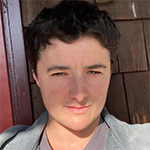 J Andros
J Andros
J Andros (they/he) writes to find a more freeing form of communication. Originally from Washington DC, he was exposed early to protests and continues to work from New York City or the San Francisco Bay Area. His writing has been featured on radio shows, in short films, in anthologies, and on stages around the world. J Andros co-founded the poetry publication Poets Reading the News and has taught and studied creative writing at NYU and other institutions. You can find more of their work at www.jandros.work or on social media @nycdownglo.
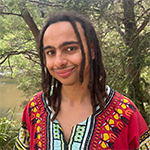 Jamil Badi
Jamil Badi
Jamil Badi is a writer living on unceded Wurundjeri land. Inspired by oral storytelling practices, his work primarily consists of folktales which aim to blend the properties of the spoken word with the written. His fiction, poetry, and creative non-fiction has appeared in Meanjin, Overland, Island, Cordite, Voiceworks, and elsewhere. He is a recipient of the 2026 Next Chapter Fellowship.
 Daragh Byrne
Daragh Byrne
Daragh Byrne is a Sydney-based Irish poet. His work has appeared in Southword, Poetry Wales, Poetry Birmingham Literary Review, Banshee, Howl New Irish Writing, Cyphers, Crannóg, The Waxed Lemon, The Four Faced Liar, Stony Thursday Book, and elsewhere. He has been shortlisted or commended in the Patrick Kavanagh Award, Fool for Poetry International Chapbook Competition, Poetry London competitions (pamphlet and single poem), and the Listowel Writer’s Week Collection Competition. He is founding editor of The Marrow, a journal of international poetry. https://themarrowpoetry.com
 Elena Croitoru-Reed
Elena Croitoru-Reed
Elena Croitoru-Reed has a Masters in Creative Writing from the University of Cambridge. She has won the Charles Causley Poetry Prize, the South Bank Poetry Prize, and was commended in the National Poetry Competition. She has also placed or was a finalist in the Montreal Poetry Prize, Bridport Prize, and other awards. Her first poetry pamphlet won the Live Canon Pamphlet Prize. Her work is forthcoming or has appeared in POETRY, World Literature Today, and The Poetry Society, among others.
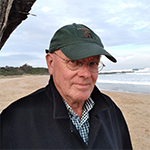 Ross Gillett
Ross Gillett
Ross Gillett lives on Dja Dja Wurrung country in Daylesford in the central highlands of Victoria. He has won a number of Australian awards, including the Newcastle Poetry Prize, and has twice been shortlisted for the Blake and Peter Porter prizes. His first book, The Sea Factory, was published by Five Islands Press in 2006, and currently his books The Mirror Hurlers (2019) and Swimmer in the Dust (2022) are available from Puncher & Wattmann.
 Lisa Gluskin Stonestreet
Lisa Gluskin Stonestreet
Lisa Gluskin Stonestreet is the author of The Greenhouse (2014), which was awarded the Frost Place Prize, and Tulips, Water, Ash (2009), which was awarded the Morse Poetry Prize). Her poems have appeared in journals including Plume, Boulevard, Beloit Poetry Journal, and Kenyon Review, as well as in multiple anthologies. She lives in northern California, where she reads, writes, edits, teaches writing, and with writers in her backyard Poetry Shack. lisagluskinstonestreet.com
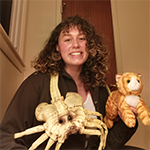 Lily Holloway
Lily Holloway
Lily Holloway is a powerlifting enthusiast and a recent graduate of the Syracuse University Creative Writing MFA. This year, they won The Joyce Carol Oates Award in Poetry for the best group of poems by a graduate student at Syracuse University as well as The Joyce Carol Oates Award in Fiction for best story. They are a 2024 winner of the Griffith Review Emerging Voices competition and placed second in the 2024 Black Warrior Review Poetry Competition. Their work is published or forthcoming in various publications, including Black Warrior Review, Sundog Lit, Ōrongohau | Best New Zealand Poems, Peach Mag, and Hobart After Dark. Their chapbook was published in 2021 as a part of Auckland University Press’s AUP New Poets 8. Find them on X and Instagram.
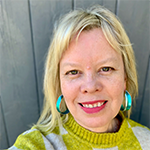 Kirsten Krauth
Kirsten Krauth
Kirsten Krauth is an author, podcaster, editor, and poet. Her latest novel, Almost a Mirror, was shortlisted for the Penguin Literary Prize and SPN Book of the Year and recognised by The Guardian as one of the Best Australian Books of 2020, sparking a podcast and live show. Her poem, ‘Pencils from Heaven’, was runner up in the Blake Poetry Prize and her first book of poetry, Beautiful Avalanche, will be published by Life Before Man in 2027.
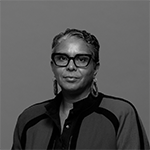 Cheryl Leavy
Cheryl Leavy
Cheryl Leavy is an award-winning writer from the Kooma Nation who is passionate about language revitalisation. Writing in both English and her critically endangered Kooma language, she has been published by Cordite, Griffith Review, Southerly, The Guardian, and in the University of Queensland Press anthology, Words to Sing the World Alive. In 2022, Cheryl won the Oodgeroo Noonuccal Prize for Indigenous Poetry. She has recently completed her first poetry collection, titled Mudhunda – The Song Country, to be published in 2027. Cheryl’s dèbut bilingual picture book, Yanga Mother, was shortlisted for an Australian Book Industry Award and a Queensland Literary Award for a Work of State Significance.
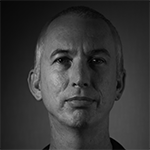 Damen O’Brien
Damen O’Brien
Damen O’Brien is a multi-award-winning Brisbane-based poet. His prizes include The Moth Poetry Prize, the 2017 Peter Porter Poetry Prize, and the New Millennium Writings Award. His poems can be found in New Ohio Review, Aesthetica Magazine, Arc Poetry Journal, Mississippi Review, and other journals. Damen’s latest book is Walking the Boundary (Pitt Street Poetry, 2024).
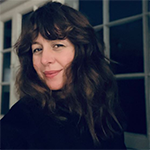 Claire Potter
Claire Potter
Claire Potter is author of four poetry collections, Acanthus (Giramondo, 2022), Swallow (Five Islands, 2010), N’ombre (Vagabond, 2007), and In Front of a Comma (Poets Union, 2006), as well as numerous essays and translations. She lives between Sydney and London, where she is Head of the Writing Centre at the Architectural Association.
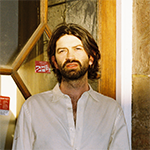 Dominic Symes
Dominic Symes
Dominic Symes lives on the unceded lands of the Wurundjeri people of the Kulin Nation. His début collection, I saw the best memes of my generation (Recent Work Press, 2022) was highly commended in the 2024 NSW Premier’s Literary Awards. In 2025 he was shortlisted for the Overland Judith Wright Poetry Prize and became a father for the first time. His second collection, songs of love & hate speech, is forthcoming with Rabbit in 2026.
The Peter Porter Poetry Prize is funded by the ABR Patrons, with generous support from Andrew Taylor AM.
Peter Rose Editorial Cadetship
‘Gaining a toehold in the world of publishing can be tricky. Once you are in, if you have the requisite talent and drive, things can happen, but penetrating that wall is the hard part. I am delighted to be associated with an editorial cadetship that will transform people’s careers. I hope that ABR readers will join me in supporting this invaluable program.’
Peter Rose (Editor and CEO, 2001-25)
One of Peter Rose’s many legacies as Editor and CEO of Australian Book Review has been his dedicated mentorship of young editors. During his twenty-four years at ABR, Rose has trained and encouraged countless editors. Many of them have gone on to senior positions in publishing and journalism, sometimes at ABR. Our new Editor, Dr Georgina Arnott, is a perfect example, having joined the ABR staff in 2022. So is Will Hunt, who excelled as a Monash University intern in 2023 and duly became Assistant Editor in 2024. These outstanding success stories typify ABR’s commitment to nurturing the next generation of editors and publishers, and to ensuring that the magazine attracts and rewards talent and ambition.
Australian Book Review is delighted to announce that in September 2025 Dr Carissa Chye joined ABR as the inaugural Peter Rose Editorial Cadet. She holds a PhD in English Literature from the University of Sydney, where her research explored Frank O’Hara and the New York art scene of the 1940s. She also holds a Master of Creative Writing, Publishing and Editing from the University of Melbourne.
On her appointment as Peter Rose Editorial Cadet, Dr Carissa Chye said the following:
I am honoured and delighted to commence my editorial career through the Peter Rose Editorial Cadetship. As an academic researcher now transitioning into publishing, I am profoundly grateful for the opportunity to grow as an editor under a program that both commemorates Peter Rose’s remarkable legacy of mentorship and reaffirms ABR’s commitment to cultivating new voices in Australian letters. It is a privilege to contribute to the magazine’s rich editorial tradition at this pivotal juncture in its history, and I look forward to honing my skills under the guidance of such an accomplished and dedicated team.
Peter Rose said this about the appointment of Dr Carissa Chye:
Congratulations to Carissa Chye! Having worked with dozens of ABR cadets and interns over the years, I know how transformative they can be for people with ambition and flair. These opportunities are all too rare in a sector facing serious - and mounting - existential threats. I hope that you will consider joining me in supporting this unique cadetship.
ABR thanks its many Patrons who have supported this appeal. It welcomes new donations, which will continue to support this important initiative.
2025 ABR Elizabeth Jolley Short Story Prize
2025 ABR Elizabeth Jolley Short Story Prize
Australian Book Review is delighted to announce that Tara Sharman is the winner of the 2025 ABR Elizabeth Jolley Short Story Prize. Judges Julie Janson, John Kinsella and Maria Takolander chose Sharman’s story ‘Shelling’ from an international field of about 1,300 stories. Sharman is the youngest winner of an ABR prize at twenty-two years old. New Zealand writer Tracey Slaughter was placed second for her story ‘Sediment’ and becomes the first writer to be shortlisted for all three of ABR’s prizes; and Rachael Wenona Guy was placed third for ‘Limerence’, an experimental, illustrated short story. All three shortlisted stories appeared in the August issue, which can be purchased here. The Jolley Prize is worth a total of $12,500 and is for an original work of short fiction of between 2,000 and 5,000 words, written in English. This is the sixteenth time the Jolley Prize has run and it is one of the world’s leading prizes for short fiction.
Status: Winner announced
Prize Money: $12,500 (first prize: $6,000, second prize: $4,000, third prize: $2,500)
Dates: Opens 10 February and closes 5 May 2025, 11:59 pm (AEST)
Judges: Julie Janson, John Kinsella, Maria Takolander
The judges said this of the three shortlisted stories:
‘Shelling’ by Tara Sharman (first place)
In ‘Shelling’, we meet a woman in flight, driving with the corpse of her dead father stowed in the boot of her car. Stunningly written, savagely honest, this is a story about grief – the grief of losing a father, the grief of losing a childhood, the grief of having to live beyond a state of innocence. It is a story, as the second-person narration implies, that is deeply personal but also profoundly universal.
‘Sediment’ by Tracey Slaughter (second place)
‘Sediment’ takes the form of twenty-seven brilliant points about living and loving in a female share house. It encompasses intense casual relationships and snarks at a landlord and his rotten portfolio. The story reflects on being young, poor, and wild, and is frenetically evocative of contemporary urban lives and their characteristic insecurity. The language is fresh while confronting and dismantling of conventions, offering an affront to widely accepted middle-class mores.
‘Limerence’ by Rachael Wenona Guy (third place)
‘Limerence’ deftly interweaves artifice and realism, narrative ellipses and unsettling meditation to create an uncanny confession. It stages a teenage girl’s obsession around the image of the dead young explorer and sailor John Torrington and life in a conservative town in an island state. The staging is paced, powerful, and evocative. That this death obsession makes life almost bearable for the girl marks the trysts and autopsies of social alienation and colonial legacies.
Of the overall field, the judges commented:
The 2025 Jolley Prize longlist was one of the strongest any of us have encountered in a short story prize. There was a marked inclination to narrative innovation. Childhood was an ever-present concern and motif, and familial situations were scrutinised, valorised, and forensically picked apart. The traumas of dealing with the mental health system/s and tensions between isolation and social immersion were other constant themes. The judges were unanimously delighted in the prize placements and feel the shortlist demonstrates the ongoing power, intensity, and absolute necessity of the short story in literary cultures.
The longlist for the 2025 ABR Elizabeth Jolley Short Story is as follows (in alphabetical order by author surname):
Lachlan Alexander (Vic) | A Good Clean Death
Lorraine Carmody (New Zealand) | Alone
Catherine Chidgey (New Zealand) | Inflatable World
Sarah Day (Tas) | The Plain
Rachael Wenona Guy (Vic) | Limerence (Third place)
Sharmila Jayasinghe (NSW) | List Before Sertraline
Anthony Lawrence (QL) | Live Feed
Holly Pekowsky (USA) | Work On Your Personality
Spencer Scholz (SA) | Pterosaur
Tara Sharman (Vic) | Shelling (Winner)
Tracey Slaughter (New Zealand) | Sediment (Second place)
The 2025 Jolley Prize longlist
 ‘A Good Clean Death’ by Lachlan Alexander
‘A Good Clean Death’ by Lachlan Alexander
Lachlan Alexander lives in a small Australian town called Jan Juc on a eucalyptus-lined road with the Southern Ocean on one side and sheep paddocks on the other. His short story ‘Threads of Truth’, about how we remember the dead, was shortlisted for the 2025 Commonwealth Short Story Prize. When not writing, he runs on trails, cooks, and reads – though not all at once.
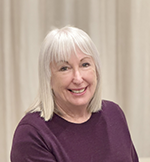 ‘Alone’ by Lorraine Carmody
‘Alone’ by Lorraine Carmody
Lorraine Carmody is a writer from Aotearoa-New Zealand. She has an MA in Creative Writing from Massey University. Her short stories have been published in Landfall and At the Bay – I Te Kokoru and she was runner-up in the 2024 Katherine Mansfield Sparkling Prose Competition. She has worked as a nurse and a journalist.
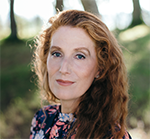 ‘Inflatable World’ by Catherine Chidgey
‘Inflatable World’ by Catherine Chidgey
Catherine Chidgey is ‘one of New Zealand’s greatest living writers’ (Radio NZ). She is the author of nine award-winning, bestselling novels, including Remote Sympathy (2020), Pet (2023), and The Axeman’s Carnival (2022). Her books are published globally and translated into several languages. She has twice been longlisted for the Women’s Prize in the United Kingdom and shortlisted for the Dublin Literary Award. Chidgey is the only person to have won the Acorn Prize for Fiction twice – her country’s most prestigious literary award. Her latest novel, The Book of Guilt, has been called ‘an emotional and intellectual tour de force’.
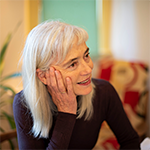 ‘The Plain’ by Sarah Day
‘The Plain’ by Sarah Day
Sarah Day’s poem ‘The Orphan’ was shortlisted for the 2025 Peter Porter Poetry Prize. Her books have won awards including the Queensland Premier’s and ACT poetry prizes. She has collaborated with musicians in the United Kingdom and Australia, and has judged national poetry, fiction, and nature-writing competitions. Her ninth collection, Slack Tide, (Pitt Street Poetry, 2022), was shortlisted for the Tasmanian Literary Awards.
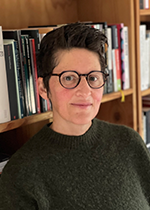 ‘Limerence’ by Rachael Wenona Guy
‘Limerence’ by Rachael Wenona Guy
Rachael Wenona Guy creates writing, visual art, and performance. Her writing has appeared in numerous Australian and international journals and anthologies including Overland, Sleepers Almanac, Australian Poetry Journal, Australian Poetry Anthology, and most recently Raging Grace, an anthology of collaborative writing on disability. Walleah Press published her début poetry collection, The Hungry Air, in 2020. She is currently working on a new collection of experimental poetic memoir to be published in 2026.
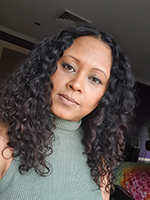 ‘List Before Sertraline’ by Sharmila Jayasinghe
‘List Before Sertraline’ by Sharmila Jayasinghe
Sharmila Jayasinghe is a Sri Lankan-Australian author whose stories breathe between borders of land, language, and memory. A PhD candidate at the University of Sydney, she explores diaspora, identity, and Occidentalism through fiction and critical research. Her full-length novels Butterfly Kisses and The Untold Story of My Lover, along with her award-winning novella Brown Isn’t My Colour, weave ancestral echoes with contemporary rhythms. A former journalist with an MA in Creative Writing from Deakin University, Sharmila’s work reflects the beauty and dissonance of living in-between: past and present, home and away, self, and story.
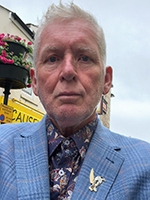 ‘Live Feed’ by Anthony Lawrence
‘Live Feed’ by Anthony Lawrence
Anthony Lawrence has published nineteen books of poems and a novel. His work has won a number of awards, including the Prime Minister’s Literary Award, the Peter Porter Poetry Prize, the Philip Hodgins Medal, and the Ginkgo Prize for Eco poetry. He lives in Moreton Bay, Queensland.
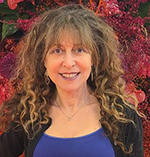 ‘Work On Your Personality’ by Holly Pekowsky
‘Work On Your Personality’ by Holly Pekowsky
Holly Pekowsky won the John Steinbeck award for short fiction and has been published in The Boston Review, Bellevue Literary Review, and Reed Magazine. Her stories have also been finalists in several contests, including Indiana Review, New Ohio Review, Arts & Letters, and Bellingham Review. Other honours include being shortlisted for The Masters Review and the Bridport Prize and longlisted for LitMag’s Virginia Woolf Award for Short Fiction and LitMag’s Anton Chekhov Flash Fiction Award.
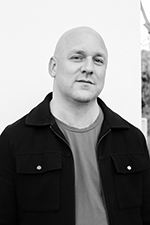 ‘Pterosaur’ by Spencer Scholz
‘Pterosaur’ by Spencer Scholz
Spencer Sholz is an award-winning writer, playwright and performer living in South Australia. Having studied at the University of Ballarat Arts Academy, Spencer has gone on to work with renowned arts companies such as Australian Shakespeare Company, Red Stitch Actors Theatre, and See Saw Films, collaborating with Seam Harris, Warwick Thornton, Aunty Donna, Stuart Broad, Thomas M. Wright, and Greg Carroll. He has written and produced four new plays in the past five years under the moniker Safari Street Creative.
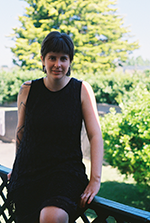 ‘Shelling’ by Tara Sharman
‘Shelling’ by Tara Sharman
Tara Sharman grew up in Tasmania/lutrawita. Her writing is deeply shaped by nature and her upbringing in the beautiful bush and sea land that is the coastal south of the island. She placed equal first in the Young Tasmanian Writers contest in 2020 and has commenced further studies in Melbourne/Naarm since then. She is twenty-two years old.
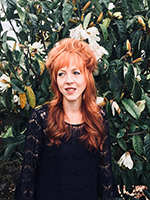 ‘Sediment’ by Tracey Slaughter
‘Sediment’ by Tracey Slaughter
Tracey Slaughter is a poet, fiction writer, and essayist from Aotearoa New Zealand. Her work has received numerous awards including the 2024 Calibre Essay Prize, The Moth Short Story Prize 2024, the Manchester Poetry Prize 2023, the Fish Short Story Prize 2020, and the Bridport Prize 2014. In 2018 her poem ‘breather’ was runner-up in the Peter Porter Poetry Prize. She teaches at the University of Waikato, where she edits Poetry Aotearoa. Her recent books are The Girls in the Red House are Singing (2024) and Devil’s Trumpet (2021) both from Te Herenga Waka Press, and her volume of personal essays the human dress will be published by Te Herenga Waka Press in 2026. She is currently working on another book of fiction and collaborating with Liam Hinton on a screenplay adaptation of her novella, The Longest Drink in Town.
More information
Please read our Frequently Asked Questions and Terms and Conditions.
If you need to contact us, and these documents don’t answer your query, please call (03) 9699 8822 or email This email address is being protected from spambots. You need JavaScript enabled to view it.
Previous winners
Subscribers to ABR can read previous prize-winning stories to the Jolley Prize. To read these stories, click here.
If you aren’t a subscriber, digital subscriptions begin at only $10 per month. Click here to become an ABR subscriber.
Exclusivity
Entries may be offered elsewhere during the judging of the Jolley Prize. If an entrant is longlisted and has their story accepted elsewhere, the entrant will have 24 hours to decide if they wish to withdraw their story from the Jolley Prize. Exclusivity is essential for longlisted stories to remain in contention for shortlisting.
Entry fees
Online entry (current ABR subscriber) – $20
Online entry (standard/non subscriber) – $30*
- Non-subscribers will receive digital access to ABR free of charge for four months.
Special online entry + subscription bundles
Subsequent entries may be submitted at the subscriber rate:
Online entry + 1-year digital subscription - $100
Online entry + 1-year print & digital subscription (Australia) - $130
Online entry + 1-year print & digital subscription (NZ and Asia) - $220
Online entry + 1-year print & digital subscription (Rest of World) - $240
Please sign up to our free 'Prizes and Programs' newsletter for more information about the 2025 ABR Elizabeth Jolley Short Story Prize.
ABR warmly acknowledges the generous support of ABR Patron Ian Dickson AM, who makes the Jolley Prize possible in this lucrative form.
ABR Fellowships - FAQ
What is the ABR Fellowship program?
ABR Fellowships are intended to reward outstanding Australian writers, to enhance ABR through the publication of long-form journalism, and to advance the magazine’s commitment to ideas and critical debate. The Fellow will work closely with the Editor of ABR. The chosen Fellow will contribute three review essays and/or commentaries in the field of Australia history and culture. ABR will publish these articles in print and online. Each article will run from 1500 to 2000 words. The articles (agreed on with the ABR Editor) will be staggered over twelve months.
Who can apply for an Inglis Fellowship?
Any writer aged thirty-five and under is eligible to apply: scholars, academics, journalists, commentators, creative writers, etc. Applicants must be Australian citizens or have permanent resident status in Australia. ABR staff and board members are ineligible. Contributors to the magazine are encouraged to apply. We welcome applications from First Nations writers and those with diverse backgrounds.
Who can apply for a Science Fellowship?
Any writer is eligible to apply: scientists, scholars, academics, journalists, commentators, creative writers, etc. Applicants must be Australian citizens or have permanent resident status in Australia. ABR staff and board members are ineligible. Contributors to the magazine are encouraged to apply. We welcome applications from First Nations writers and those with diverse backgrounds.
How much are the Fellowships worth?
The Fellow will receive a total of $5,000.
I don’t know anything about ABR. May I still apply?
Applicants must demonstrate real familiarity with the magazine and convince the panel that their article would complement other writings in ABR and win us new readers. Applications that do not refer to the magazine, or demonstrate any awareness of ABR’s own needs and directions, are unlikely to be successful.
Are the Fellowships themed?
The ABR Inglis Fellow will contribute articles in the field of Australia history and culture. The ABR Science Fellow will contribute three reviews essays or commentaries over twelve months in the field of science and/or the history of science. This reflects the breadth of ABR’s interests and content.
Is it possible to write the article with a friend or colleague?
No. Single-author works only.
Is ABR looking for academic papers?
No. ABR is not an academic journal. We seek engaging literary journalism of the kind you will find in The New Yorker or the London Review of Books. Links to essays by past Fellows can be found here.
Are you looking for finished articles from applicants?
No. We seek cogent proposals for articles to be developed over the course of the Fellowship, in collaboration with the Editor. Unlike the Calibre Essay Prize, the Fellowship program is not for finished works.
How do I apply?
Applicants must read the guidelines of the Fellowship for which they are interested in applying and send us a succinct but comprehensive proposal (two pages maximum), plus a CV of no more than two pages. Note that we are looking for proposals – not finished articles or chapters. Applications must be received by the closing date of the relevant Fellowship. There is no application fee. Applicants are strongly encouraged to discuss their proposals with the Editor before submitting them: (03) 9699 8822 or This email address is being protected from spambots. You need JavaScript enabled to view it.
How are Fellows selected?
The Fellowship will be awarded by Australian Book Review on the advice of a committee including the Editor of ABR. No correspondence will be entered into once the decision has been announced. ABR reserves the right not to award a Fellowship during a particular round.
Are the ABR Fellows expected to complete their projects at the ABR office in Melbourne?
No. Most of the editorial contact is via email or the telephone. Some meetings may be desirable during the course of the Fellowship. These are important collaborative partnerships between the magazine and the Fellows.
What kind of editorial support do Fellows enjoy?
We edit promptly, closely, and respectfully. ABR is committed to presenting the Fellow’s work in the best-possible form. The Editor is always available to discuss the project, to respond to ideas, and to read drafts. Georgina Arnott edits the articles in consultation with the Fellows, and each article is then proofread by at least three editors.
Where are the Fellowship articles published?
In the print and digital editions of ABR.
Would I be required to take part in the promotion of the published article?
Yes.
Current Fellowships - Science
The ABR Science Fellowship
Judging is now underway for the 2025 ABR Science Fellowship. ABR hopes to announce the fellow in the July issue.
The ABR Science Fellowship offers a unique opportunity to make a substantial contribution to the magazine in the area of science writing. The fellowship is intended to advance the careers of science writers and to augment ABR’s coverage of science and the history of science. The chosen Fellow will be able communicate sophisticated ideas in lucid and engaging language for a general audience.
What will the ABR Science Fellow contribute?
The Fellow will contribute three reviews essays or commentaries over twelve months in the field of science and/or the history of science. We expect that the Fellowship will become a regular program, complementing the ABR Fellowships, of which we have offered about 25 since 2001.
What will the ABR Science Fellow receive?
The Fellow will receive a total of $5,000, in three instalments, and will work closely with the ABR Editor, Georgina Arnott.
Who can apply?
Any writer is eligible to apply: scientists, scholars, academics, journalists, commentators, creative writers, etc. Applicants must be Australian citizens or have permanent resident status in Australia. ABR staff and board members are ineligible. Contributors to the magazine are encouraged to apply. We welcome applications from First Nations writers and those with diverse backgrounds.
How to apply?
Applicants are strongly encouraged to refer to the Frequently Asked Questions on our website. Applicants may wish to discuss their proposals with the Editor before finalising them: This email address is being protected from spambots. You need JavaScript enabled to view it.
The application should comprise a proposal of two pages plus a short CV. Applicants should summarise the following:- their interest in the magazine and its direction;
- how their contributions will advance ABR and attract new readers;
- the likely nature/scope/genre of the three articles. (We are mindful that the Fellowship may evolve throughout the year.)
Applicants should also attach two examples of their literary journalism. Applications must be emailed to This email address is being protected from spambots. You need JavaScript enabled to view it. by 5 pm on 20 January 2025 (AEDT). There is no application fee.
Familiarity with ABR
Applicants must demonstrate considerable familiarity with ABR – its style, its content, its direction. Visit our website to subscribe to print and/or digital.
Selection process
ABR Editor Georgina Arnott will choose the Fellow with legendary science broadcaster Robyn Williams, who has hosted The Science Show on ABC Radio National since 1975. We expect to name the Fellow within four weeks of closure. No correspondence will be entered into once the decision has been announced. ABR reserves the right not to award a Fellowship in a particular round.
How can I find out about past ABR Fellowships?
Information about the previous Fellowships is available here.The ABR Science Fellowship is supported by a bequest from Dr Ann Moyal AM (1926-2019), a historian noted for her work in the history of science.
Status: Closed for entries, winner announced.
Total Prize money: $10,000
Dates: 28 October 2024 – 28 January 2025, 11:59 pm AEST
Judges: Georgina Arnott, Theodore Ell, and Geordie Williamson
Australian Book Review is delighted to announce that Jeanette Mrozinski has won the 2025 Calibre Essay Prize for her essay, ‘Eucharist’, becoming the first American writer to win the prestigious award. Now in its nineteenth year, the Calibre Essay Prize is well established as one of the world’s leading prizes for an unpublished essay. Judges Georgina Arnott (new Editor and CEO of ABR), Theodore Ell (2021 Calibre winner), and Geordie Williamson (Deputy Chair of ABR) chose ‘Eucharist’ from a field of 648 entries from 26 countries. This year’s runner-up is ‘The Chirp/The Scream’, by Melbourne writer Natasha Sholl (who was also runner-up in 2024), and third prize goes to South Australia-based writer Robin Boord for ‘Consolation of Clouds’. Andra Putnis was commended for her essay ‘The Art and Atrocity of Disaster Scenarios’. The winning essay is published today in the May issue of ABR, and the second and third-prize-winning essays will appear in the subsequent two issues.
The judges said this about Mrozinski’s winning essay:
‘Eucharist’, an essay of breathtaking emotional power and moral force, conveys a woman’s quest to obtain an anti-viral drug within seventy two hours of being raped to avert the risk of contracting HIV. As the crucial minutes tick away and our protagonist rushes to yet another pharmacy, we observe the grim realities of America’s health system for those facing hard choices around unaffordable, unattainable pharmaceuticals. The essay depicts ordinary, everyday distress in today’s America.
On winning the Calibre Essay Prize, Jeanette Mrozinski said:
Often, the working-class stories that make it into our literature are treated as outsider art, their value appraised by their shocking degrees of desperation and humiliation that, for millions, is simply the chronic dramatic tension of everyday survival. Our world is increasingly ruled by autocrats and oligarchs. We face interconnected democratic, economic, and environmental crises that transcend international borders, threatening to make life harder for us all. In this desperate hour, I am truly honoured to be selected as the first American to win the Calibre Essay Prize, and so deeply heartened to know that ABR readers are engaging with this story of individual and collective action.
The judges said this of the other prize-winning and commended essays:
Runner-up
‘The Chirp / The Scream’ by Natasha Sholl from Victoria is a controlled study of violence and its chaotic aftermath. In the way a film-maker might rewind and edit a scene, ‘The Chirp / The Scream’ performs the brilliant technical feat of replaying and revising a single experience, questioning every detail, realising what must and must not be true at every repetition, and gradually substituting the relevant facts one detail at a time – even while an unconscious insistence on the wrong version impinges on the conscious mind and the apparently correct version. All at once, this essay describes a vicious crime, recounts how the criminal was pursued, reflects on the ripples of the event decades later, and creates a dramatic tension between fact, memory and feeling.
Third place
‘Consolation of Clouds’ by Robin Boord from South Australia conveys the mystery surrounding the death of woman’s father, a pilot in the Korean War who died unexpectedly at home after a mechanical failure on a training flight. Boord writes in poetic prose that creates narrative movement through a gradual succession of images connected by the recurring motif of sliding, strange, penetrable clouds. ‘Nice cloud,’ observes an aunt as they watch a slide show of the pilot’s images. The essay hints at the troubling prospect that more happened to him than was officially recorded, but also, with great evocative skill, implies the depth of loss beneath family scenes that seem at first a picture of stoicism and good humour. Boord’s descriptions of a household of relatives cooking and catering their way out of poverty, and enjoying cloud photography on the kitchen wall, are especially poignant.
Commended
The judges commended ‘The Art and Atrocity of Disaster Scenarios – A Family Tale’ by Andra Putnis from the Australian Capital Territory. This essay contemplates the real possibility that as the climate changes and international tensions rise, even in the Australian refuge of suburbia we may soon no longer presume ourselves safe. The essay recounts a conversation between the protagonist and her partner about how their family might survive a catastrophe, a playful thought experiment that quickly darkens. Uniquely, this essay subordinates the sense of menace to a trustful dialogue in which challenges are posed lovingly and met thoughtfully, suggesting that for all that is wrong in the world, much else remains right.
Of the overall field, the judges said:
Memoirs were strongly represented this year. The judges observed an impulse to distil baffling and traumatic change in the political and social spheres – climate change, war, imperilled democracies, the rise of right-wing populism – into terms that might reconcile overpowering historical forces with events and feelings closer to personal experience. Personal misfortune and its often-traumatic effects were present in compelling essays about illness, loss, grief, accident, and betrayal. Even in the darkest situations and the bleakest arguments, there lingered an implicit belief that in personal expression there was hope.
The personal dimension was intrinsic even to those essays in which personal experience was not a principal subject. Seldom did authors seek extreme objectivity and exclude themselves from their arguments. The essay at its best moves seamlessly between the public and private realms, between the larger world and felt experience. The essays that reached the shortlist involved their authors and invited the reader to observe the complex dance between thinking and feeling that makes good writing.
The shortlist for the 2025 Calibre Essay Prize is as follows (in alphabetical order by essayist):
Anneke Bender (USA) | ‘Tracing Threads’
Robin Boord (SA) | ‘Consolation of Clouds’ (Third)
Chris Ellinger (Vic) | ‘Inner World Supertramp’
Kate Fullagar (ACT) | ‘The Painting’
Adam Gottschalk (ACT) | ‘Empty Chairs at Full Tables’
Taralyn Honson (UK) | ‘Sick Enough’
Kelly Ana Morey (NZ) | ‘Biography’
Jeanette Mrozinski (USA) | ‘Eucharist’ (Winner)
Andra Putnis (ACT) | ‘The Art and Atrocity of Disaster Scenarios’ (Commended)
Natasha Sholl (Vic) | ‘The Chirp/The Scream’ (Second)
Sarah Walker (Vic) | ‘Piscine’
Dominic Warshaw (USA) | ‘Grafting Figs’
Past winners
Click the link for more information about past winners and to read their essays.
FAQs and Terms and Conditions
Please read our Frequently Asked Questions before contacting us with queries about the Calibre Prize.
Before entering the Calibre Essay Prize, all entrants must read the Terms and Conditions.
Exclusivity
Entries may be submitted elsewhere during the judging of the Calibre Prize. If the essay(s) are longlisted by ABR, the entrant will have 24 hours to decide if they wish to withdraw their essay elsewhere or from the Calibre Prize. Exclusivity is essential for longlisted essays, and we require confirmation of such for all longlisted essays.
The overall winning essay will be published in the first half of 2025, followed by the runners-up.
Entry fees
Current ABR subscribers: $20
Standard/non subscribers: $30*
*All non-subscribers will automatically receive four-month digital access to ABR free of charge.
Entry + subscription bundles
Entry + 1-year digital subscription: $100
Entry + 1-year print subscription (Australia): $130
Entry + 1-year print subscription (NZ and Asia): $220
Entry + 1-year print subscription (Rest of World): $240
Those who purchase a subscription while entering will be able to submit subsequent entries at the subscriber rate ($20).
ABR thanks founding Patrons Mary-Ruth Sindrey and Peter McLennan for their continuing support for the Calibre Essay Prize.
2025 Calibre Essay Prize Judges
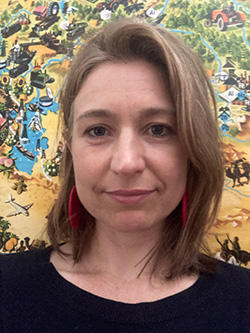 Georgina Arnott has been Assistant Editor at Australian Book Review since 2022. She is the author of The Unknown Judith Wright (UWAP, 2016), shortlisted for the National Biography Award, Judith Wright: Selected Writings (La Trobe University Press, 2022), and numerous book chapters, essays, and articles in the field of Australian literary studies, history and biography. Georgina is a former judge of the National Biography Award (2018, 2019), an ABC Top 5 Humanities Scholar (2021), and a Rockefeller Archive Center fellow (2024).
Georgina Arnott has been Assistant Editor at Australian Book Review since 2022. She is the author of The Unknown Judith Wright (UWAP, 2016), shortlisted for the National Biography Award, Judith Wright: Selected Writings (La Trobe University Press, 2022), and numerous book chapters, essays, and articles in the field of Australian literary studies, history and biography. Georgina is a former judge of the National Biography Award (2018, 2019), an ABC Top 5 Humanities Scholar (2021), and a Rockefeller Archive Center fellow (2024).
 Theodore Ell is an honorary lecturer in literature at ANU. He won the 2021 Calibre Essay Prize for ‘Façades of Lebanon’, an essay about surviving the Beirut port explosion of 2020, and his memoir of revolution and crisis in Beirut, Lebanon Days, was published in July 2024. His poetry collection Beginning in Sight shared the Anne Elder Award in 2022. Theodore's essays and poetry have been published in Australia, the UK, Italy and Lebanon. He lives in Canberra.
Theodore Ell is an honorary lecturer in literature at ANU. He won the 2021 Calibre Essay Prize for ‘Façades of Lebanon’, an essay about surviving the Beirut port explosion of 2020, and his memoir of revolution and crisis in Beirut, Lebanon Days, was published in July 2024. His poetry collection Beginning in Sight shared the Anne Elder Award in 2022. Theodore's essays and poetry have been published in Australia, the UK, Italy and Lebanon. He lives in Canberra.
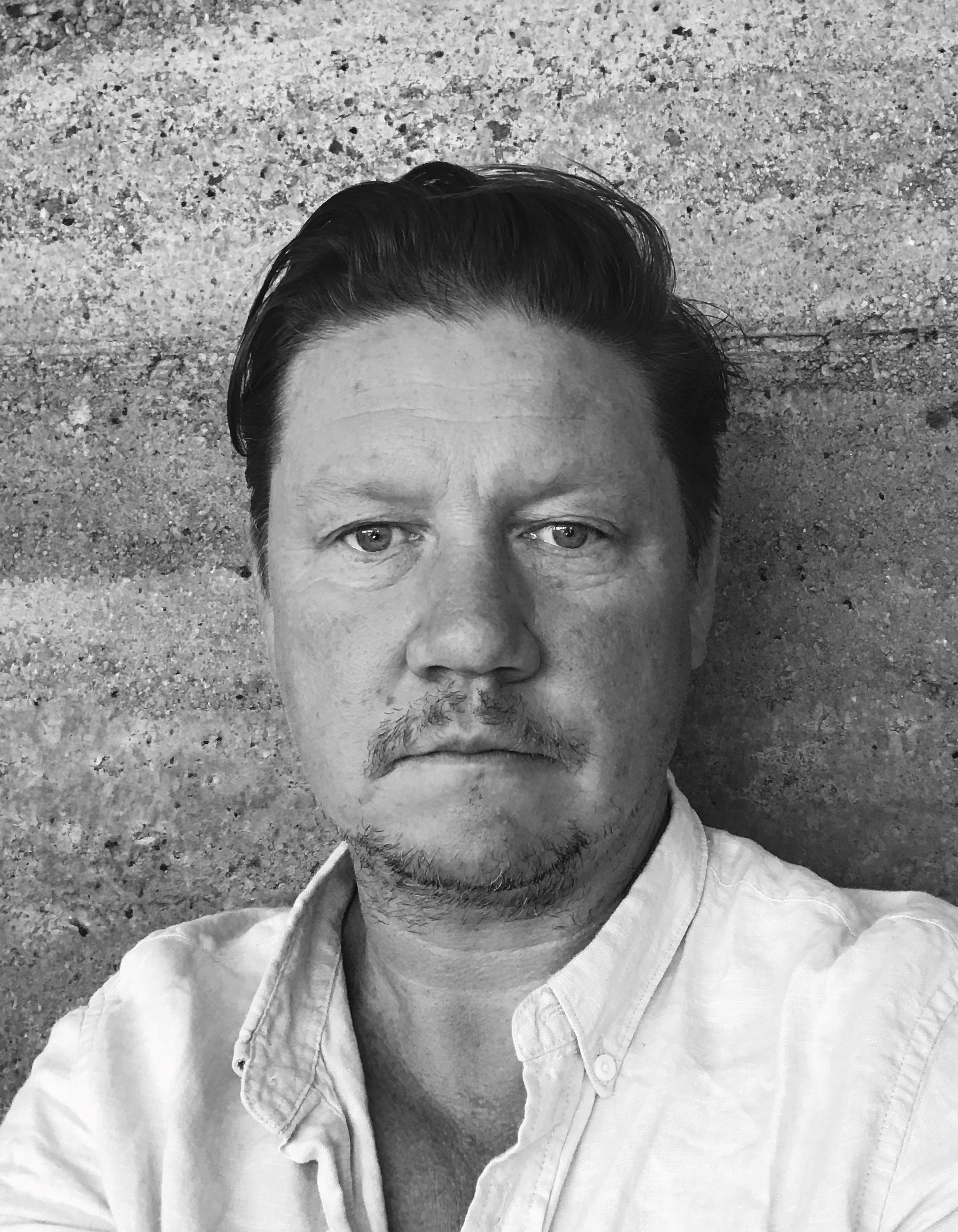 Geordie Williamson has worked as a critic for a quarter of a century. He won the Pascall prize for arts criticism, edited Best Australian Essays, published a book, The Burning Library, on neglected figures from Ozlit, edited Tasmania's Island magazine, and has been Chief literary critic of The Australian since 2008. Latterly he has worked as a publisher at Pan Macmillan, where he mainly concentrates on the Picador imprint. He has two books of his own forthcoming: a monograph on Alexis Wright for Black Inc.'s Writers on Writers series, and a work of non-fiction about his Scottish family's long association with Easter Island.
Geordie Williamson has worked as a critic for a quarter of a century. He won the Pascall prize for arts criticism, edited Best Australian Essays, published a book, The Burning Library, on neglected figures from Ozlit, edited Tasmania's Island magazine, and has been Chief literary critic of The Australian since 2008. Latterly he has worked as a publisher at Pan Macmillan, where he mainly concentrates on the Picador imprint. He has two books of his own forthcoming: a monograph on Alexis Wright for Black Inc.'s Writers on Writers series, and a work of non-fiction about his Scottish family's long association with Easter Island.


